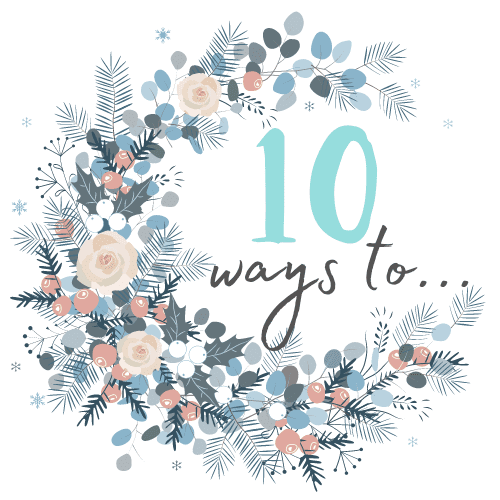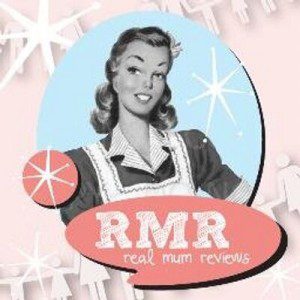Up until I had my second child I was one of those annoying women who had really light periods. They would come, like clockwork, every 28 days on the dot, last for 2-3 days and then promptly disappear again, not to be seen, or even thought about for that matter, for another month. I could go about my normal business, didn’t have to change any of my plans and being on my period didn’t affect my life at all, it was just a female rite of passage and had been consistently non-eventful for quite some time.
This all changed however after Neve, my second daughter, was born. Exclusively breastfeeding, I didn’t get my periods back until Neve was almost one, something I was secretly quite elated about; but when they did come back, BOY did they come back with a vengeance. I joked that it was almost like my body was catching up; somehow getting its own back for the respite it had given me for the last 12 months. I assumed it would just be those first few periods after a break that would be that way, that life would soon return to ‘normal’, and that my body would revert to the way it had been before. I’ve since learnt that when it comes to childbirth, our bodies can change in ways that you might not expect, and for me, my periods changing have been a huge part of that.
My monthly experiences are now somewhat different. Not only do I get extremely heavy periods, but they are on a shorter cycle (arriving around every 21 days), last much longer and come with physical (and emotional) side effects that leave me feeling more than a little worse for wear. I get quite severe stomach cramps, tension headaches and light headedness and then, due to suffering from anxiety generally , I tend to find my anxiety heightens both approaching to, and during my periods.
At their worst, I have been known to cancel social arrangements, feel self-conscious and uncomfortable, and decide that the safest option is just to stay in and eat ice cream (the latter of which is far from essential but definitely seems to help with my mood!). Dressing up or wearing anything other than my jogging bottoms and BIG pants, just doesn’t seem like a feasible option. However obviously hibernating isn’t always possible, I still have to work, I still have to be a parent and life has to go on as normal.

I know that I am not alone. It appears that periods changing after childbirth and women experiencing heavy periods is actually really common, yet no one really talks about it. In fact, no one really talks about periods at all do they? Recent research from Wear White Again found that actually more than 1 in 5 women experience heavy periods – that’s nearly 3.5 million women, yet their findings were that a huge 62% of people (including myself!) didn’t realise that heavy periods are actually a medical condition which can be treated. Almost half of women (49%) experiencing heavy periods hadn’t spoken to their GP about it, believing it was simply ‘part of being a woman’.
I have to admit, being part of that 49%, I tend to be in the ‘get on with it’ category, trying to accept that heavy periods are just the way my body works now, and I wrongly assumed that there wasn’t much my GP could do other than telling me to take paracetamol. I assumed he would be dismissive, to tell me it was ‘just one of those things’ or try and educate me on the reasons why periods can change after your children are born. A science lesson was not exactly what I had in mind.
The reality is, there are lots of different causes of heavy periods from hormone imbalances to endometriosis, and a variety of different treatment options available, not all of which are as daunting as you may expect. Some of the less invasive treatments include fitting a intrauterine system (IUS) which releases progestogen, acts as a contraceptive and prevents the lining of the womb growing as quickly. There are also a range of medications available which can have a positive effect on both the physical and emotional symptoms of heavy periods.
Despite this, Wear White Again’s research found that a shockingly high 43% of women felt the need to take time off work due to heavy periods – with almost half preferring to lie and pretend they had diarrhoea rather than reveal the real reason to their employer. It makes me really sad to think of women being embarrassed in this way.
This month Wear White Again have published their Talking Heavy Periods guide, with the aim of breaking the taboo around discussing periods. The guide is also designed to help women (and men!) become more knowledgeable about periods, looking at the questions we should be asking ourselves and our loved ones, to help us understand what’s “normal” and when they might need to seek help.
If you think you may be experiencing heavy periods yourself but aren’t sure, there is also a Heavy Period Questionnaire which you can complete in order to gauge whether you fall into this category.
I think this is a great campaign to encourage conversations around heavy periods, and if it helps women go and seek some medical help to manage their symptoms then, for me it’s a huge success. You can download the Talking Heavy Periods guide here .
*This is a collaborative post with Wear White Again. Facts quoted are from the Talking Heavy Periods guide and Where White Again research, however all thoughts, opinions and personal experiences are my own*






